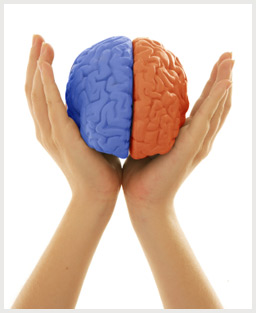Traumatic Brain Injury Treatment

Mild Injury
A mild traumatic brain injury doesn’t usually require medical treatment other than rest and overt-the-counter pain relievers to treat a headache. It is important to monitor your injury if is persistent, worsening or any new symptoms occur. Visiting the doctor will help you recover with the proper steps and care. A doctor will let you know when it is appropriate to return to work, school or recreational activities. It is recommended to avoid physical or cognitive activities that could make things worse until symptoms have resolved. Returning to your normal routine is a gradual process.
Immediate Emergency Care
Moderate to severe traumatic brain injuries need emergency care to focus on making sure the person has adequate oxygen and blood supply, maintaining blood pressure and preventing any further injuries to the head or neck.
People with severe injuries may also have other injuries that need to be treated as well. Treatments will focus on minimizing secondary damage due to inflammation, bleeding or reduced oxygen supply to the brain.
Medications
Some of the medications that limit secondary damage to the brain immediately after an injury include:
- Diuretics: These types of drugs reduce the amount of fluid in tissues and increase urine output. Diuretics are given intravenously and help reduce pressure inside the brain.
- Anti-seizure drugs: People with a moderate to severe traumatic brain injury are at risk for having seizures during the first week after their injury. These drugs may be given during the first week to avoid additional brain damage that might be caused by a seizure.
- Coma-inducing drugs: Sometimes these drugs are used to put people into a temporary coma because a comatose brain needs less oxygen to function. This can be very helpful if blood vessels that are compressed by increased pressure in the brain, are unable to deliver the usual amount of nutrients and oxygen to brain cells.
Surgery
Emergency surgery may be needed to address the following issues:
- Removing clotted blood (hematomas). Bleeding inside or outside the brain can result in a collection of clotted blood that puts pressure on the brain and damages tissue.
- Repairing skull fractures. People may need surgery to repair severe skull fractures or to remove pieces of the skull in the brain.
- Opening a window in the skull. Surgery may be used to relieve pressure in the skull by draining excess cerebral fluid or creating a window to provide more room for swollen tissue.
Rehabilitation
Most people will require rehabilitation to recover from a moderate to severe brain injury. The goal of rehabilitation is to improve their ability to perform daily activities. The type and duration varies by individual and depends on the severity of the injury and what part of the brain was injured.
 Fewer Cases Better Results
Fewer Cases Better Results 




